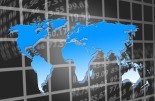Wim Zwanenburg: Navigating fundamental uncertainty
Wim Zwanenburg: Navigating fundamental uncertainty

This column was originally written in Dutch. This is an English translation.
Investors and management teams of international companies are facing enormous uncertainty and highly turbulent markets. How should we deal with this?
By Wim Zwanenburg, investment strategist at Stroeve Lemberger, written in a personal capacity.
Despite recent news about a possible easing of tariffs between the US and China and the start of a 90-day pause on broader mutual tariffs, uncertainty surrounding President Trump's trade policy remains. Given the temporary nature of these measures, import tariffs are likely to remain a key topic in board meetings and conference calls with economists, analysts and investors for the rest of the year.
CEOs are grappling with a barrage of challenges – from the disruptive impact of AI and geopolitical tensions to import tariffs and financial market volatility, which are partly the result of erratic statements by the US president on social media. Transcripts of conference calls on first-quarter results and forecasts for the rest of the year by S&P 500 companies revealed that 411 mentioned the terms “tariffs” or “import duties”. The impact of trade restrictions on growth was still very limited in the first quarter, but several multinational companies are nevertheless revising or suspending their financial forecasts. Many companies explicitly warned of unpredictable policy and uncertainty about logistics chains, inventories, consumer spending and investments. A new business landscape is emerging as globalisation, which has been the basis for growth over the past 40 years, is threatened by increased protectionism. Trump's unpredictability makes it virtually impossible to assign probabilities to scenarios.
We are seeing many managers adopt a wait-and-see attitude. But if they wait too long, companies will lose momentum, become less innovative and be paralysed by indecision. Acting too quickly and opting for new production locations in the US could lead to significantly higher production costs, a decision that may have to be reversed later. In the short term, leaders need to give themselves time. Above all, they must take “no regret” measures to secure supply chains, business activities, sources of funding and customers. Better diversification of supply chains seems to me to be a good thing in any case. During Covid, we also discovered that we had become too dependent on China. Reindustrialisation in the US with robots and AI, closer to the consumer market, is not a bad thing if labour costs become relatively less important. The “industrial renaissance” was already underway before the start of Trump's second term.
The current circumstances remind me of Radical Uncertainty: Decision-Making for an Unknowable Future by John Kay and Mervyn King, published in 2020. In their book, they make it clear that in the world of economics and finance, we almost always have to make decisions in a world that is fundamentally unpredictable. The authors argue that many models and assumptions in economic science do not provide sufficient insight into situations of “radical uncertainty”. AI applications are great, but you should not blindly rely on them. The authors advocate “practical judgement”. Decision-making requires practical wisdom, not just theoretical knowledge. They argue for a revaluation of human intuition, experience and judgement in decision-making and advice, so as not to panic. Investors often find high volatility uncomfortable, but in Trump's words: “It's part of the deal”.









